Board of Directors
THE VACFSS Board
The VACFSS board brings a combined 45 years of volunteer, leadership and community service to the society.
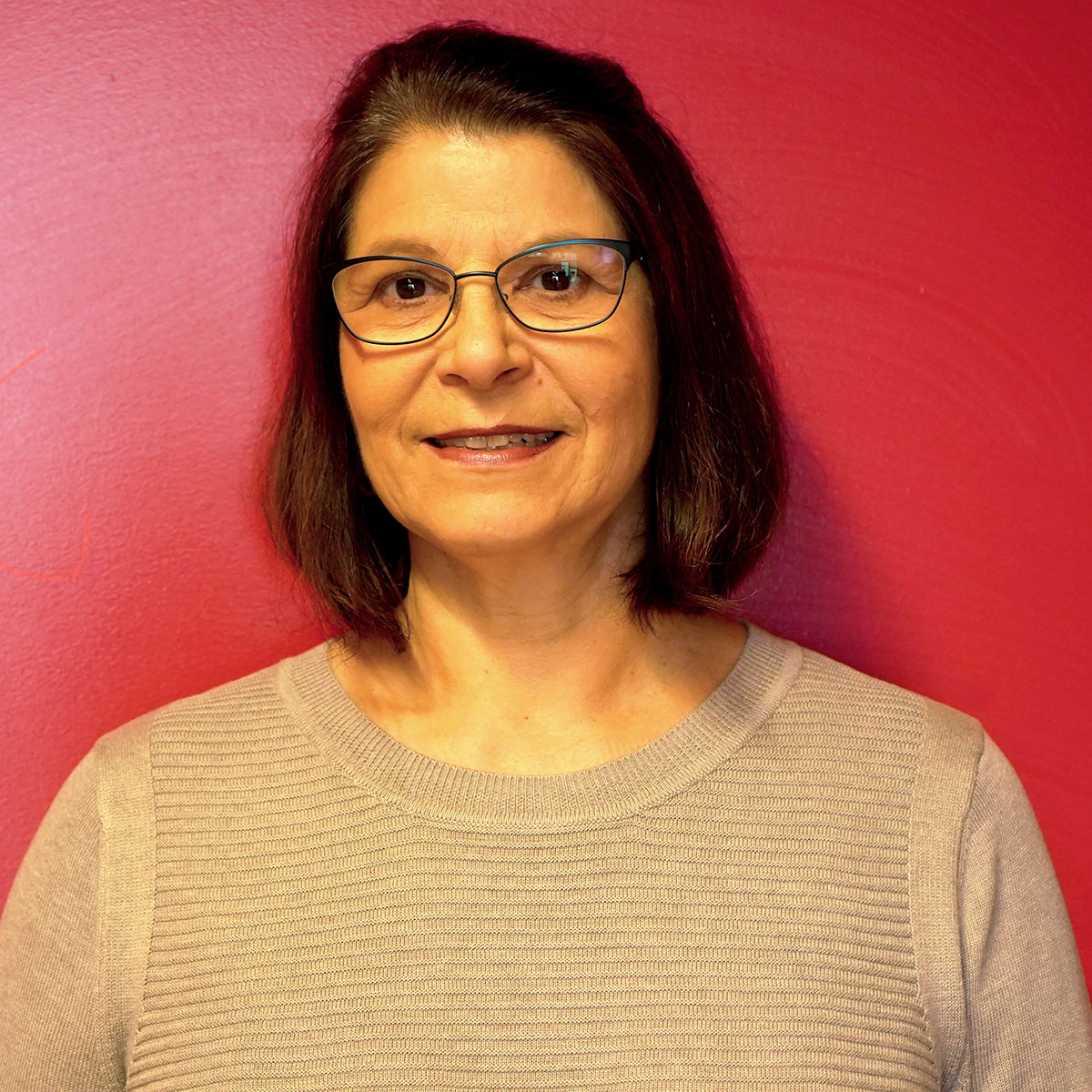
Linda Stiller, Chair
Linda Stiller is a member of the Williams Lake Indian Band of the Shuswap Nation. She is the mother of 2 adult children and she has lived in Burnaby for 30 years.
Linda has worked in social services her entire career since graduating from McMaster University in 1976 with Bachelor degrees in Social Work and Sociology.
She worked with the BC Government as a child protection Social Worker in the early 1980s in Vancouver East and moved over to the Department of Indian and Northern Affairs Canada in 1982.
Linda has worked directly with First Nations across BC in all social services program areas and in 1997 became the Manager of Child and Family Services.
As Manager, she worked with First Nations and Provincial officials to develop First Nations Child and Family Service Agencies in BC: there are currently 22 on reserve. She also had responsibility for Income Assistance, Family Violence Prevention and Adult Assisted Living programs on reserve.
Linda retired in 2010 and joined the board of VACFSS the same year. She has been the board Chair since 2012.
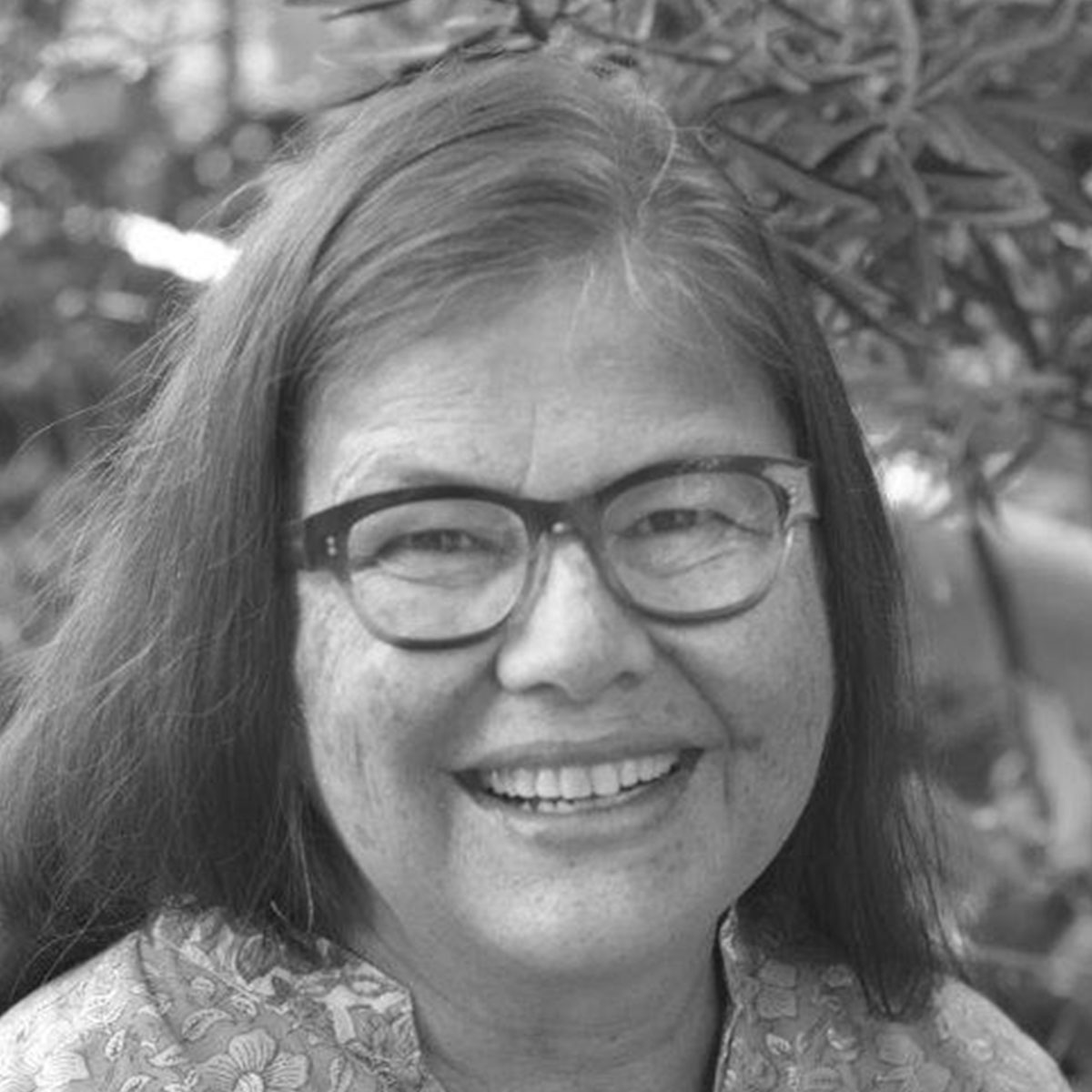
Madeleine MacIvor, Co-Chair
Madeleine MacIvor is a Métis woman whose family comes from the historic Métis community of Lac Ste Anne in northern Alberta. She is mother of three adult children and 13 grandchildren.
Madeleine moved to Coast Salish territory in 1984 to study at the University of British Columbia where she graduated from the Native Indian Teacher Education Program (BEd, Elementary), Ts’kel Graduate Studies (MA, Science Education) and the Educational Leadership and Policy Program (EdD, Educational Studies). In 2011 she received a Doctorate of Letters, honoris causa from the University of the Fraser Valley for her work in Indigenous education.
Between 1989 and 2011, Madeleine served the educational needs of Indigenous students at UBC through her work with the First Nations House of Learning and the Faculty of Forestry.
Madeleine is now retired, and in her post-retirement life, she is honored to serve on VACFSS’s board of directors where she can share her skills and knowledge to enhance the well-being of Indigenous children and families.
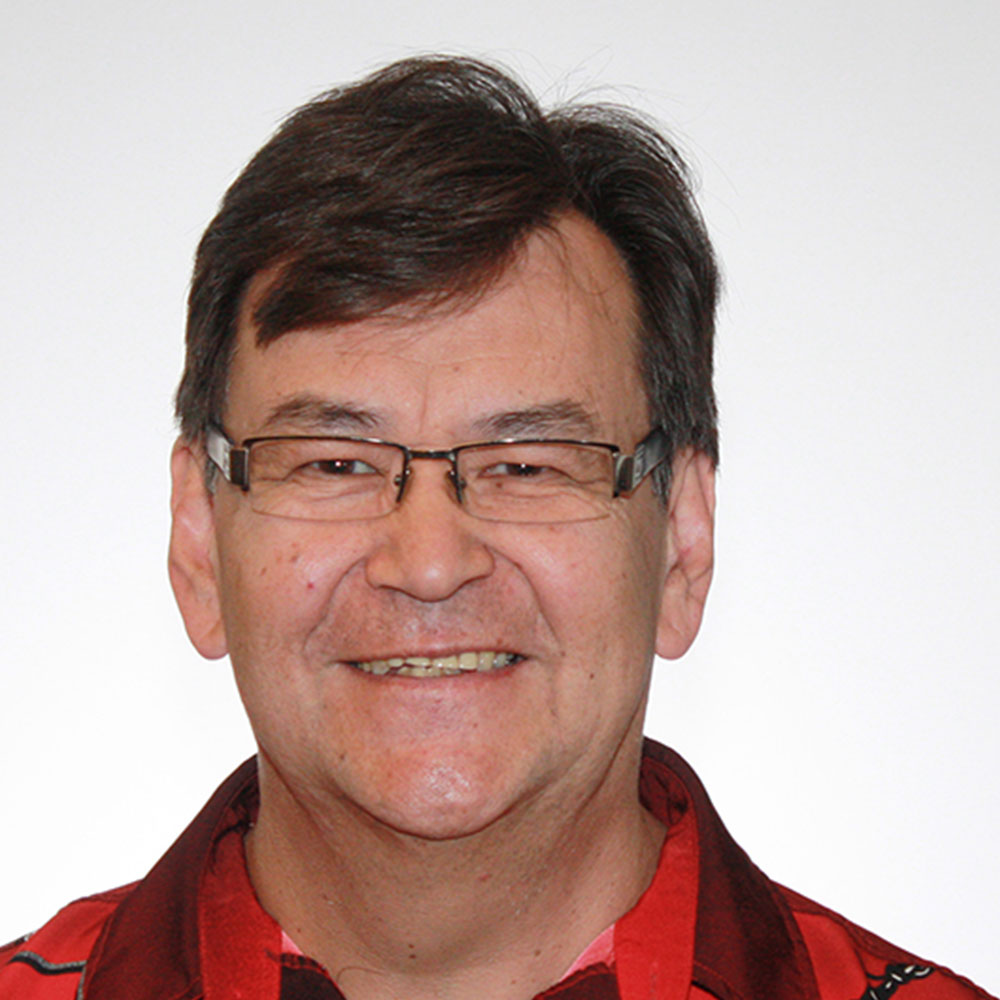
Richard George, Secretary/Treasurer
Richard is a member of the Ahousaht Tribe. Since October 2019, he currently serves as a Manager Strategic Initiatives, Community Infrastructure Directorate for Indigenous Services Canada (ISC) BC Region. Between February 2017 and September 2019, he was as a Senior Capital Advisor, Community Infrastructure Directorate for ISC BC Region. Prior to 2017 and since 2002, he has served as a Funding Services Officer.
Richard holds a Bachelor of Arts Degree in Economics from the Simon Fraser University and a Financial Management diploma from the British Columbia Institute of Technology.
Prior to joining ISC in 2002, Richard spent 19 years working in the financial industry and economic development with Native organizations that include, Western Indian Agricultural Corporation, Western Indian Agricultural Producers Association and First Nations Agricultural Lending Association (formerly Western Indian Lending Association) and as Manager, Aboriginal Banking with BMO Financial Group and TD Bank Group. He has acquired experience in advising various First Nation client groups on developing and maintaining a wide variety of financial services, products that maximize their banking relationships and improved access to capital markets.
Richard is currently President and board member of the Vancouver Native Housing Society and Kitsotkwa Le’ Lum’ Housing Society. He is also currently Treasurer/Secretary and board member of the Vancouver Aboriginal Child and Family Services Society.
He currently is an executive member of the Committee for the Advancement of Native Employment (CANE) in ISC – BC Region. CANE examines, explores and recommends ways to increase the number of Indigenous staff employed within ISC, and seeks ways to retain these employees and improve the quality of their employment. To this end, CANE works co-operatively with senior management, the National CANE and other levels of the Department to recommend and facilitate changes to the Indigenous employment policies and programs within the Department and to address concerns raised by Indigenous employees. CANE promotes the four cornerstones of employment for its members: recruitment, training, retention and advancement.
Richard has been previously a member of the Faculty for the Banff Centre for Management Aboriginal Leadership and Governance program, Effective Financial Management and Governance. He is past Treasurer and board member of the Urban Native Indian Education Society that is responsible for the Native Education College. Richard also is past Treasurer and member of the Board for the Aboriginal Housing Management Society. He also has also served as a board member of the Canadian Executive Services Organization, Dr. Peter AIDS Foundation and the Dr. Peter Housing Society.
He is past Chair of a Community Advisory Committee on Employment Equity for the BC Provincial Government and past Advisory Committee member of BC Hydro’s Aboriginal Business Partnership Program. He also served as an Advisory Committee member for the University of British Columbia, Sauder School of Business – Chinook – Aboriginal Business Education Program. He has also been a member of Bank of Montreal – BC & Yukon Region – Diversity Committee and TD Bank Nakota Circle of Aboriginal Employees.

Aaron Christoff, Director
Aaron is a citizen of Saulteau First Nations from northeastern British Columbia. He has lived, worked, and studied across Canada and is glad to call Vancouver home again with his family since 2017.
Aaron works at Cochrane Saxberg, the largest Indigenous-led law firm in Canada, to help lead a new Vancouver office for them. Cochrane Saxberg specializes in litigation, child protection, employment and labour, corporate and Indigenous advocacy.
Previously, Aaron was a partner with the Indigenous law group where he maintained a practice working with Indigenous communities and organizations in the areas of Aboriginal and Treaty rights and governance, as well as litigation engaging constitutional, commercial, and fiduciary issues. He has also worked as a researcher for the Métis National Council.
Aaron is a graduate of the University of Toronto, where he studied philosophy and law.
Aaron has had the honour of being a member of VACFSS since 2017 and serving as a member of the Board of Directors since February 2018.
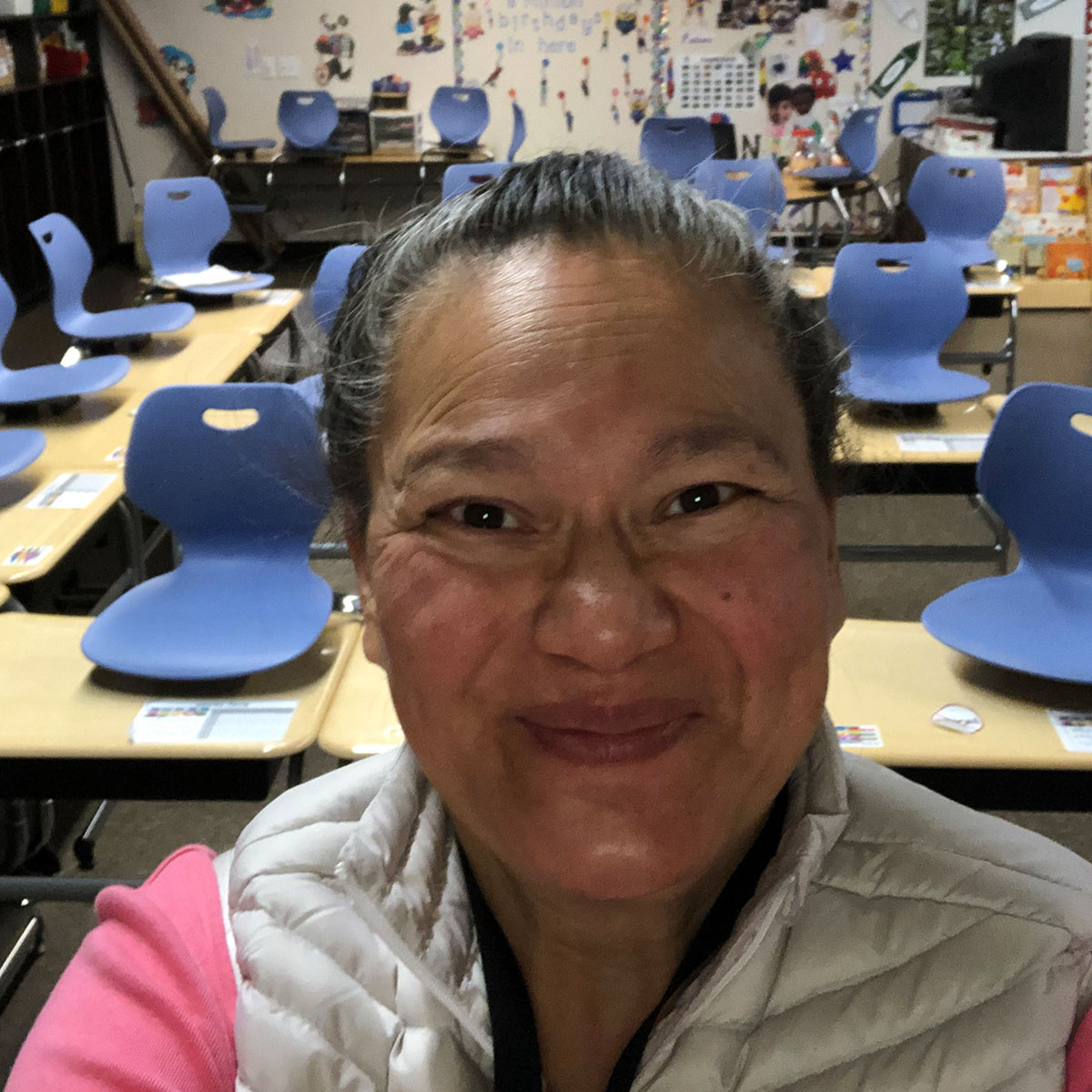
Bernice Albert, Director
Her name Yet’ko when translated into English means “Calm Water” aka Bernice Albert. She comes from the Nlakapamux Nation and is enrolled with the Cooks Ferry Band.
She is a dedicated professional with a Bachelor of Social Work and a Masters in Education Administration. With decades of experience working with children and youth as a counselor and teacher, she has developed strong English research skills and a deep understanding of child protection issues.
Recently, she has had the privilege of working as a kindergarten teacher in a chartered school in the United States, where she brought her expertise and passion for educational leadership and administration to create a nurturing learning environment for my students.
Her educational journey includes a Masters degree in Educational Leadership and Administration from the University of British Columbia, a Teaching Certificate from the Antioch Seattle University, a Bachelor’s of Social Work with a focus on child protection from First Nations University of Canada. She strongly believes in the importance of continuous learning and growth, which is why she is always seeking opportunities to expand her knowledge and skills in the fields of education and child welfare.
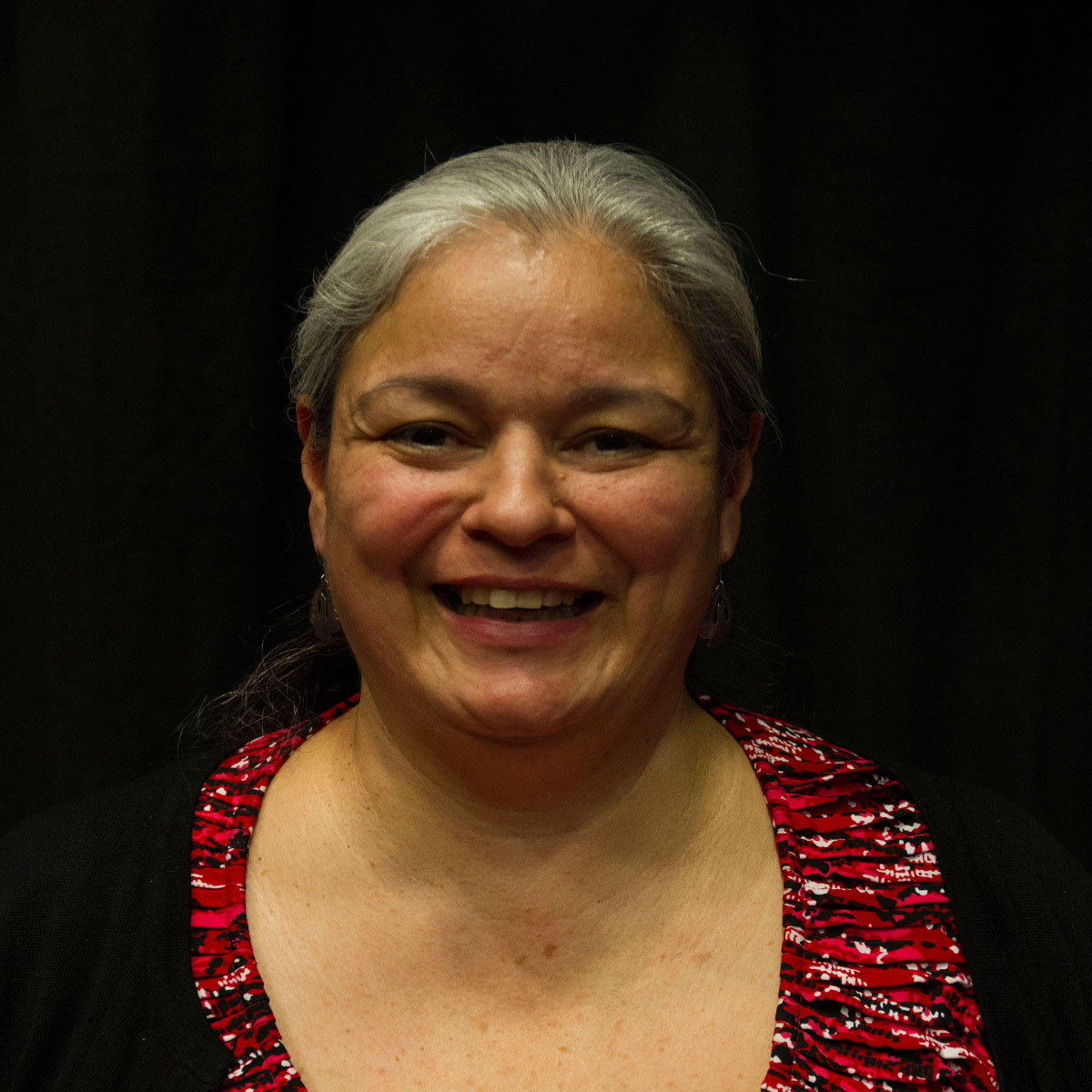
Virge Silveira, Director
Virge Silveira mother’s family is from the west side (Spapium) within the traditional territories of the Nlha7kpmx, Lytton First Nation. Her father’s family is from Sao Joao, Pico, Acores Portugal.
Virge grew up in the East end of Vancouver, lived and worked in the Fraser Canyon for eight years and spend two years in Calgary, Alberta attending graduate school and currently resides in Maple Ridge with her partner for the past 15 years with one grandchild and her mother.
Virge worked in the service industry for many years to support herself through University and parent her niece. Formal training began as an Early Childhood Educator continuing with a child and youth care bachelor’s degree from the University of Victoria.
Additionally, completing a master’s degree in Marriage and Family therapy from Loma Linda University and achieved a master’s Certificate in Project management from Peter B. Gustavson School of Business for executives.
Currently, Virge works as a Provincial Director for Partnership and Indigenous Engagement Division for Ministry of Children and Development. Finally and most importantly continues to work with ceremony for the People, to provide opportunities for self-discovery and healing to move forward in one’s life journey and purpose as given by the Creator.
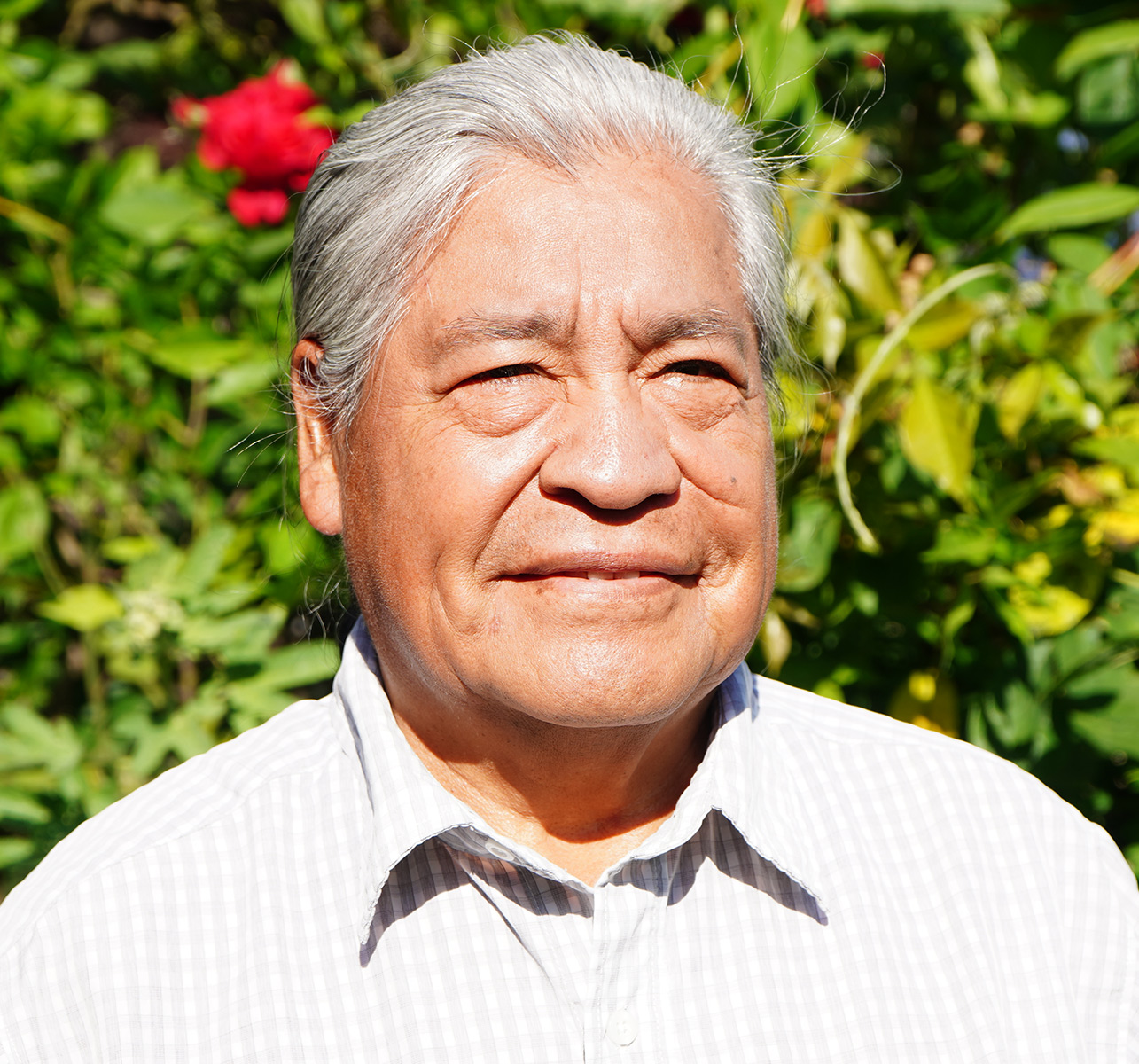
Lix Lopez, Director
Lix is a Mayan Indigenous from Guatemala. He was born in a small Maya village in the western highlands and grew up speaking the Maya-Mam language. He attended university in Guatemala, and in the 1970’s, obtained a scholarship to attend university in Belgium where he graduated from Louvain University in 1978 with an Honours B.A. in Sociology.
In 1979, after completing his studies in Belgium, Lix travelled throughout Canada and was offered the position of Central and South American Liaison Officer with the World Council of Indigenous Peoples Secretariat at the University of Lethbridge. His work with the World Council provided him with an awareness and understanding of the reality and problems faced by Indigenous Peoples worldwide. This work experience shaped his views regarding economics, politics, culture, and religion.
In the spring of 1984, he moved to Vancouver and continued to work with Indigenous Peoples in British Columbia. In 1986, he participated in the steering committee that organized the first World Conference on Indigenous Peoples’ Education that took place in Vancouver in 1987. From this conference, he learned that education is an important tool for Indigenous Peoples; consequently, in 1987, Lix returned to school at UBC. He graduated with a diploma in Adult Education and a master’s degree in educational administration. He has also obtained a certificate in International Development from UBC and a certificate in Addictions Counselling from Vancouver Community College. Since 1991, his work experience has been in the field of education of Indigenous Peoples, as an administrator, registrar, Dean, and educator.
Through his work with Indigenous Peoples in Canada and other countries, he has learned that some of the challenges facing Indigenous Peoples everywhere include poverty, discrimination, cultural loss, marginalization, and unemployment. Through his work with the World Council of Indigenous Peoples, he realized that he needed to learn more about his own Mayan culture and returned to the traditional teachings of his People. After years of learning and training with Maya spiritual Elders, he was initiated as a Day Keeper in 2001.










